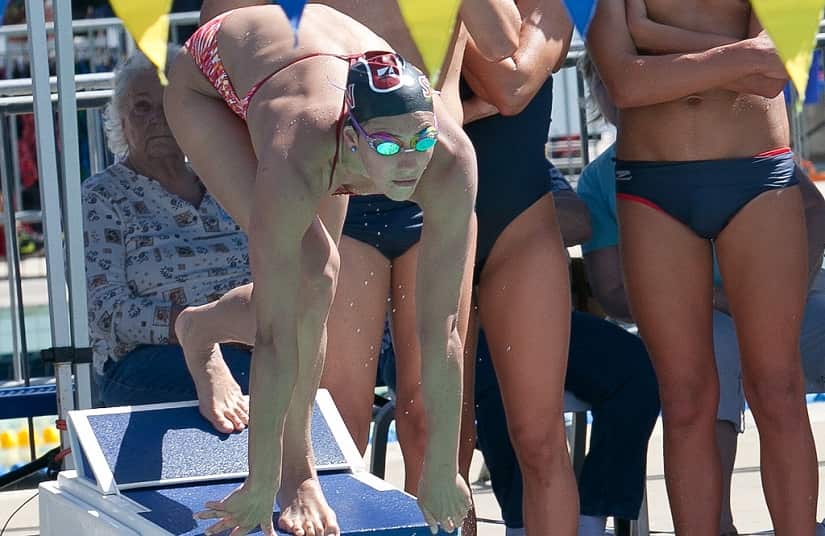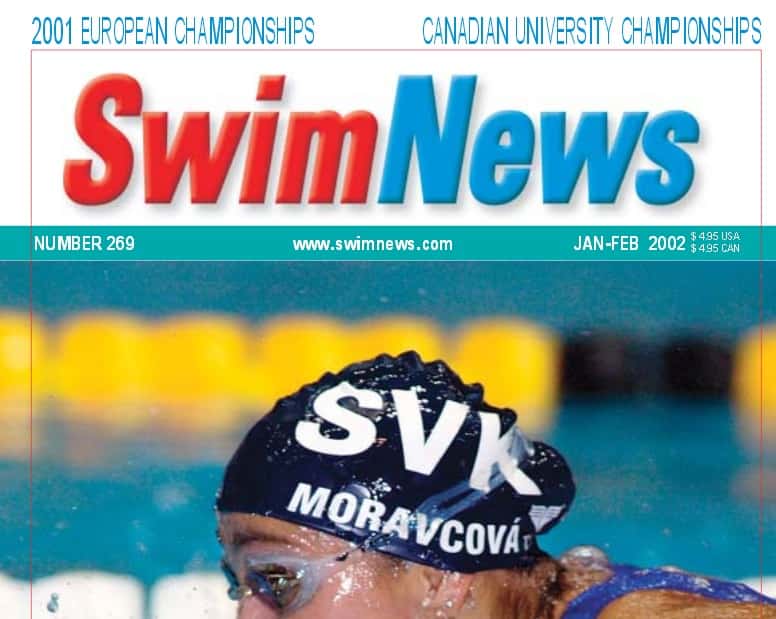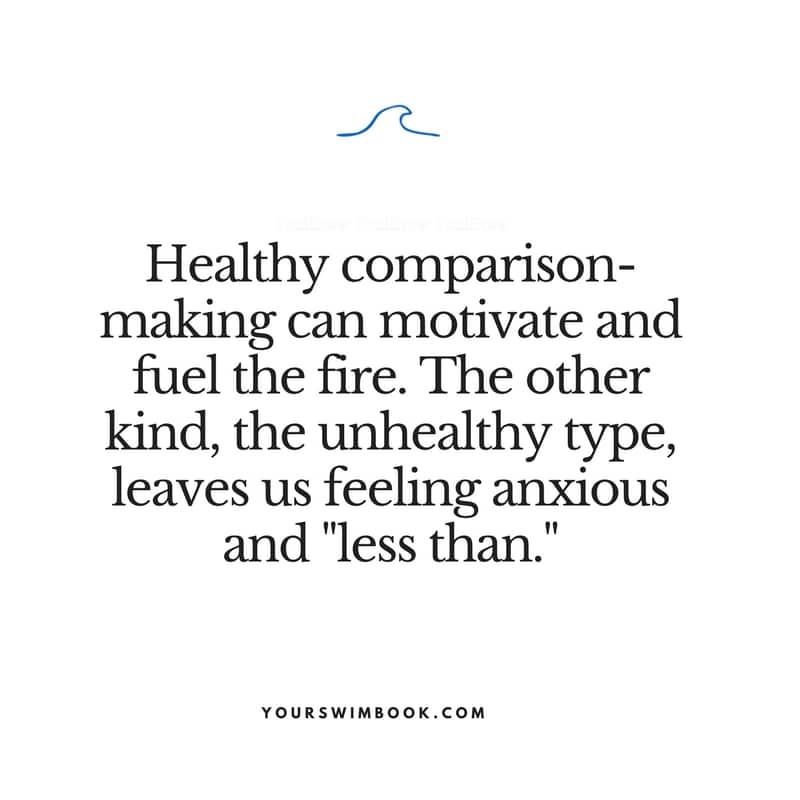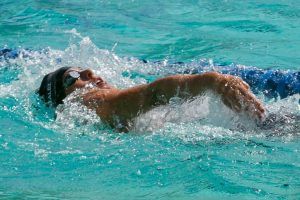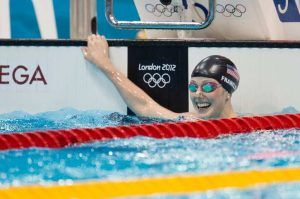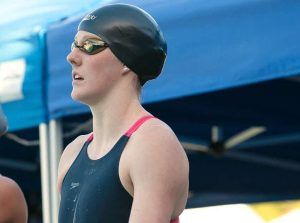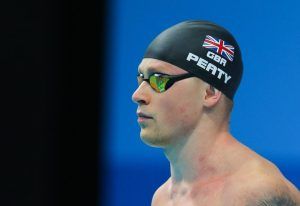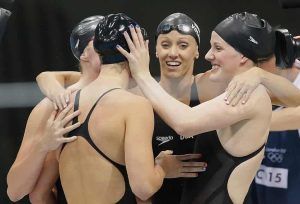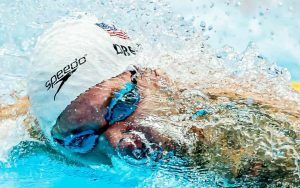Like many, I spent a lot of my age group days comparing myself to other swimmers. While we’ve always been told to keep our eyes in our own lane, there are times when it can be productive to compare ourselves to the competition.
When I was a youngster every two months I would get a copy of SwimNews Magazine to my doorstep.
In it would be the TAG rankings (top age group), for swimmers aged 11-12, 13-14, and 15-17. The top 25 swimmers would be listed in each event, including club, age, and time for each respective event.
At the end of the year the magazine would also publish a final top 50 ranking, letting swimmers across the country know exactly where they ranked in each event.
I would photocopy the pages where my name appeared, highlight myself, cross out the names of the swimmers I’d beaten, and would look up at the swimmers ahead of me and put an arrow beside the next swimmer up.
Next, I’d place this piece of paper up on the wall of my bedroom. Each day I would have to walk past it on my way out the door.
I would use this little “hit list” as a daily reminder to work by butt off with as much urgency and commitment as I could.
On the mornings where I really didn’t feel like getting up, I would look over and see that list.
On the days where I could mental fatigue kicking in, I would give that list a look.
And before workouts that I knew were going to be crushing, I gave that list a peek to give myself an extra jolt of fired-upedness.
*
When I was 12 years old there was a kid who swam for a team cross-town who I thoroughly dominated in competition. Even in his best events, I would beat him like a rented mule at every meet.
It was no surprise—he didn’t train all that hard (according to a good source—himself), and he missed a lot of training with other commitments.
The summer before we turned 13, he shot up in height like a missile. It seemed like he grew two feet over the course of a couple months. The kid even grew a mustache. Which, at that age, was a pretty big deal.
The first meet we had that fall he thoroughly whipped me up and down the pool. We dove in the water, and when I turned to take my first breath, I was already looking at his ankles.
When I went to practice the following Monday, I felt dejected.
Frustrated.
Helpless.
Like no matter how hard I worked, or how much effort I put into my practices, I would still end up getting beat.
So what was the point?
**
Both stories are examples of comparison-making.
One healthy, one not so healthy.
***
We often hear that we should just focus on ourselves, and to avoid comparison making. And I agree with this. Almost completely.
Being overly focused on the efforts of others can distract us from doing what we need to do in order to perform. It can be a cause of pointless anxiety. And it can water down our effort in the pool.
It shakes our focus from mastering the process of what it takes to excel in the water.
That being said…
Comparison making can be motivating. It can show you what can be done with hard work. Seeing someone else achieve something big makes you realize that you can do it too.
It can light a fire under your butt to start working hard at practice. And it can be the catalyst for pushing you when you are tired and frustrated and want to quit.
But it can also be demotivating and anxiety-inducing.
The main hang-up that comes with comparison-making is that we tend to compare the worst of ourselves with the best of others.
When you are having a bad day, and you go on to Instagram and see everyone living the #blessed life it’s hard not to feel crappy about yourself.
Similar to if you have a poopie swim workout and you see that some no-name teenager from across town just destroyed your best times at an in-season meet.
So really the question of comparison making becomes…
- How does comparison-making leave you feeling?
- What kind of behaviors does it end up producing in the pool for you?
- Does it cause you to be a better swimmer?
- Are you using it as a tool to push yourself in a healthy and productive way to think bigger and to chase your dreams with more aggression and determination?
- Or does it make you feel lousy, like all the hard work you have done to this point was meaningless?
Something to think about before you start lining up your swimming with that of others.
More Stuff Like This:
7 Things You Can Do Today for a Better Workout Tomorrow. Here’s how to get a head-start on making sure that your next swim practice is an epic one.
The Power of Journaling for Swimmers. Want better workouts? A bullet-proof race plan? Less anxiety behind the blocks? Yup—the simple act of journaling can help. Big time. Here’s how.

